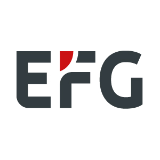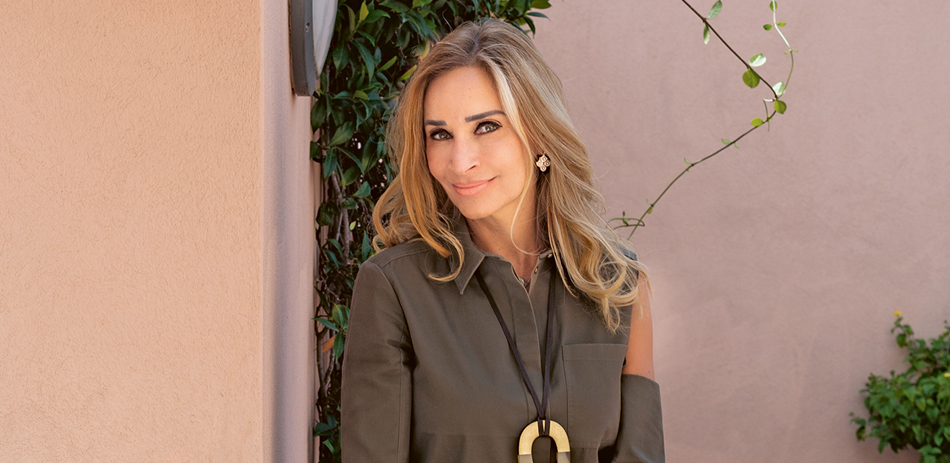Watch the video interview with Monika Schmutz Kirgöz below.
Private banking is a people business
News & interviews
3 min read
The world still trusts us – and for good reason – interview with Monika Schmutz Kirgöz
Monika Schmutz Kirgöz is Ambassador and Head of the Middle East and North Africa Division of the Swiss Federal Department of Foreign Affairs (FDFA). Her distinguished career in the diplomatic service spans almost three decades. She was a keynote speaker at EFG’s Client Relationship Officer Conference in Interlaken and spoke to InTalks about the art of diplomacy in a changing world, Switzerland’s role as a mediator and peacemaker, and the importance of speaking out.

Marketing & Communications
The world is increasingly polarised and fragmented. People around the globe are voting for change. How does this affect your work as a diplomat?
This is a very interesting time for us because we are facing the unknown but it is also very challenging. People are voting for change and we have to analyse why. I think many people worldwide feel that they are being left behind by globalisation. It is a kind of protest vote – they are turning to more populist politicians who break down the incredible complexity of the world into very simple arguments. Unfortunately, those arguments do not reflect the reality. People are looking for easy answers but they no longer exist. This is a multipolar world and we don't yet know how this multipolarism will play out; there are so many possibilities but also uncertainties. This has an influence on our work.
What do you see as the essence of diplomacy?
I think diplomacy is all about interhuman relationships. Today, everything happens in an instant. We can find out what is going on in Beijing or Washington simply by looking at our smartphones. But when it comes to building bridges and creating trust, I believe that interpersonal contact remains essential. I travel a lot nowadays and I know that once you get to know your dialogue partner, everything becomes easier.
Is there something unique about the Swiss approach to diplomacy?
I believe that Switzerland’s neutrality is an important aspect that has helped us a lot in diplomatic terms. We are universally recognised for being neutral, and at this time when the world is confronted with a very difficult situation, Switzerland is trying to build bridges and to create trust. I think there is something about Switzerland that makes us special. We have a strong tradition of humanitarianism, mediation and peace building. The world still trusts us – and for good reason. And we are very glad about that.
How do you uphold Swiss neutrality while still actively engaging with different parties or countries to foster solutions in these uncertain times?
Neutrality does not prevent us from talking to people that others would not want to talk to. This is where the universality of our foreign policy helps us. Being a neutral player and not having a colonial past gives us credibility, as does the fact that Switzerland has an enormous humanitarian tradition of helping the weaker parts of global society. I know many people who say that if Switzerland adopts a strong position, it is no longer neutral – but I believe that you can condemn an act and still be neutral. There are different levels of neutrality. I think that when it comes to building bridges and to fostering peace or making the world a better place, we are still neutral and that still helps us.
During your time as a diplomat, have you experienced situations where communication has completely broken down? How do you find a way forward in such cases?
Fortunately, that has never really happened to me. There always needs to be a channel of communication that remains open. If all forms of contact cease and you can no longer engage with the other party, then diplomacy reaches its limits because it is all about talking. In other words, it is about reaching out and having connections to the other party or other states.
You joined the diplomatic service of the Swiss Federal Department of Foreign Affairs almost three decades ago. How has the art of diplomacy evolved during that time?
I think the art of diplomacy itself has stayed the same but the whole environment has changed. When I began my career, there were no mobile phones and things were not so immediate. Out in the embassies, you would still write cables to Berne and they would wait to receive them. Today, you can simply search online to find out what is happening in the world and you can consult so many sources – so that aspect has changed a lot. But a diplomat’s core role of establishing trust and building bridges remains the same, even against the backdrop of all these new technologies or artificial intelligence. It is still a profession that is about being able to connect to people and having a large network of contacts – and knowing whom to call in a crisis.
If there was one piece of advice that you would give your younger self, what would it be and why?
I think it would be to stay true to yourself and to speak out. You should have the confidence to say what you think while, of course, respecting the rules of diplomacy. At the beginning of my career, I found this a little more difficult because I was young and often the only woman in the room. But in my experience, people tend to appreciate the fact that others have different opinions or simply want to bring a new point of view to the table so that they can reach a decision together.
This interview was published in the 2/2025 edition of EFG’s InTalks magazine.
About
Monika Schmutz Kirgöz joined the Swiss diplomatic service in 1996. Following various postings (see map), she was appointed to her current role as Ambassador and Head of the Middle East and North Africa Division of the Swiss Federal Department of Foreign Affairs (FDFA) in early 2025. She holds a degree in Political Science and Sociology from the University of Lausanne and a Master of Advanced Studies on Development Countries from the Swiss Federal Institute of Technology Zurich (ETH) in Zurich.
